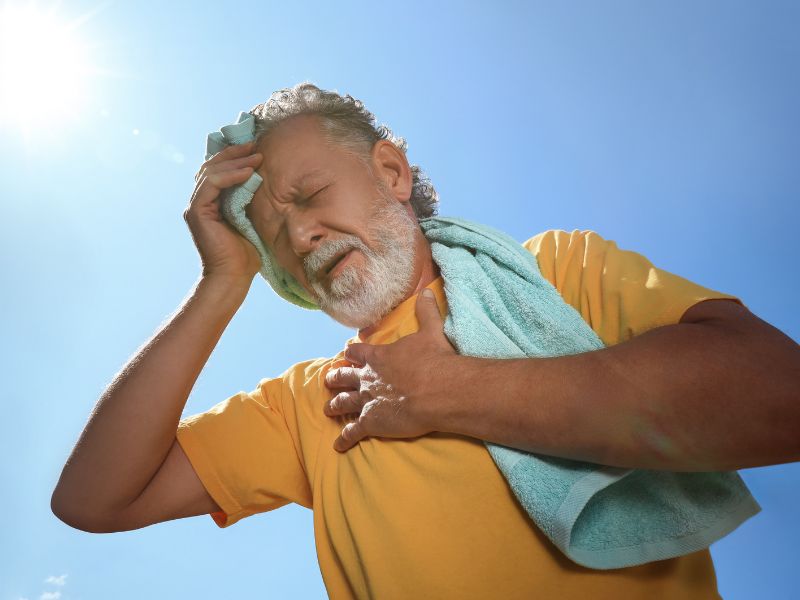Ever stepped outside on a muggy summer day and instantly felt like the air got heavier? If you have asthma, COPD, or any other chronic lung condition, you probably know this feeling all too well. It’s not just your imagination – humidity can genuinely make breathing harder. Let’s explore why humid days can be tough on your lungs and how you can enjoy summer without extra struggle.
Why Does Humidity Make Breathing Difficult?
Humidity refers to the amount of moisture in the air. When humidity levels climb, the air feels thicker and denser, making each breath a bit more labor-intensive. This humid air can cause the airways to narrow – a process called bronchoconstriction – which leads to shortness of breath, wheezing, and increased mucus production, especially in those with respiratory conditions.
According to the American Lung Association, humid air can also trap irritants and pollutants like pollen, mold, and dust, keeping them suspended in the air longer and increasing the likelihood of respiratory irritation.
How Humidity Affects Specific Respiratory Conditions
Humidity has unique effects on common respiratory issues:
- Asthma: High humidity can trigger asthma attacks by inflaming airways and prompting excess mucus production, causing difficulty breathing.
- COPD: For COPD patients, hot, humid conditions often worsen symptoms such as shortness of breath, coughing, and fatigue, reducing overall comfort and mobility.
- Allergies & Lung Irritation: Moisture-rich air keeps allergens like pollen and mold circulating, prolonging exposure and aggravating existing symptoms.
Practical Tips to Breathe Easier This Summer
Enjoying the warmer months doesn’t have to mean respiratory discomfort. Here are some practical strategies to help manage your symptoms when humidity spikes:
- Monitor Humidity Levels. Aim to keep indoor humidity between 30-50%. Consider using a dehumidifier or air conditioner to maintain comfortable breathing conditions.
- Stay Hydrated. Drink plenty of water. Staying hydrated helps thin mucus, making breathing easier and less labored.
- Check Air Quality Index (AQI). Apps and websites can alert you to days with high humidity and poor air quality, helping you plan activities accordingly.
- Limit Outdoor Activities. Schedule outdoor errands and activities for early morning or later evening when temperatures and humidity levels tend to be lower.
- Keep Medications Handy. Always carry your inhaler or prescribed medications. Don’t hesitate to use them proactively if symptoms begin to worsen.
When Should You Seek Help?
Sometimes humidity-related breathing difficulties require medical attention. Seek immediate help if you experience:
- Persistent or severe difficulty breathing, chest tightness, or wheezing unresponsive to medication
- Increased reliance on rescue inhalers with minimal relief
- Symptoms of heat exhaustion such as dizziness, confusion, rapid heartbeat, or nausea
Simplify Your Respiratory Care
Summer humidity can present challenges, but it doesn’t have to stop you from enjoying the season. With careful planning and a little preparation, you can manage your respiratory symptoms and breathe easier—even on the muggiest days.
America’s Best Care Plus also makes it easy to manage your respiratory health! With convenient home delivery of respiratory medications and supplies, you can stay prepared and comfortable no matter the weather. Explore our respiratory supply programs and start breathing easier today.

